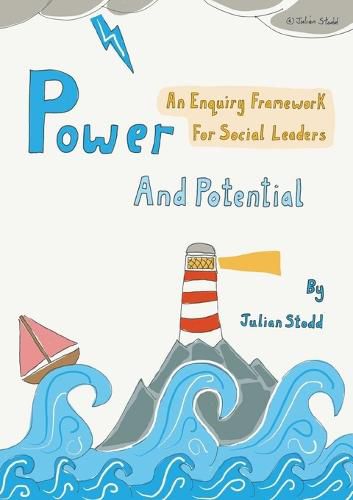Readings Newsletter
Become a Readings Member to make your shopping experience even easier.
Sign in or sign up for free!
You’re not far away from qualifying for FREE standard shipping within Australia
You’ve qualified for FREE standard shipping within Australia
The cart is loading…






This title is printed to order. This book may have been self-published. If so, we cannot guarantee the quality of the content. In the main most books will have gone through the editing process however some may not. We therefore suggest that you be aware of this before ordering this book. If in doubt check either the author or publisher’s details as we are unable to accept any returns unless they are faulty. Please contact us if you have any questions.
Some power may be held structurally, within the hierarchy, given to you by the Organisation you work for, and arranged into rules, systems, process, and mechanisms of consequence and control. Other types of power are unwritten, held within our reputation in the community, or through the influence, or coercion, that comes from seniority or expertise, stories, or beliefs.
Power is complex: it is not a one- dimensional force, but a multidimensional one. Sometimes the different forms of power that we hold in these different dimensions can operate against one another, while at other times they can
be mutually exclusive. For example, you may fail to be authentic in your own beliefs and concurrently obedient within a formal system.
Whatever type of power we are discussing, whatever form of leadership we think we need, three things are always true.
Firstly, all power has limits. We may not realise it, we may never probe it, but power always has an edge. Understanding the limits of our power may be more important than understanding the substance of it.
Secondly, all power can be opposed. However powerful we feel, and however all-encompassing the extent of our control feels, power can always be opposed. That is, at least by those willing to pay the price.
Thirdly, and finally, all power has a cost, both to ourselves, and to others. Nothing is free: it may demand our consensus or obedience, our freedom or virtue, our followership or sacrifice.
$9.00 standard shipping within Australia
FREE standard shipping within Australia for orders over $100.00
Express & International shipping calculated at checkout
This title is printed to order. This book may have been self-published. If so, we cannot guarantee the quality of the content. In the main most books will have gone through the editing process however some may not. We therefore suggest that you be aware of this before ordering this book. If in doubt check either the author or publisher’s details as we are unable to accept any returns unless they are faulty. Please contact us if you have any questions.
Some power may be held structurally, within the hierarchy, given to you by the Organisation you work for, and arranged into rules, systems, process, and mechanisms of consequence and control. Other types of power are unwritten, held within our reputation in the community, or through the influence, or coercion, that comes from seniority or expertise, stories, or beliefs.
Power is complex: it is not a one- dimensional force, but a multidimensional one. Sometimes the different forms of power that we hold in these different dimensions can operate against one another, while at other times they can
be mutually exclusive. For example, you may fail to be authentic in your own beliefs and concurrently obedient within a formal system.
Whatever type of power we are discussing, whatever form of leadership we think we need, three things are always true.
Firstly, all power has limits. We may not realise it, we may never probe it, but power always has an edge. Understanding the limits of our power may be more important than understanding the substance of it.
Secondly, all power can be opposed. However powerful we feel, and however all-encompassing the extent of our control feels, power can always be opposed. That is, at least by those willing to pay the price.
Thirdly, and finally, all power has a cost, both to ourselves, and to others. Nothing is free: it may demand our consensus or obedience, our freedom or virtue, our followership or sacrifice.